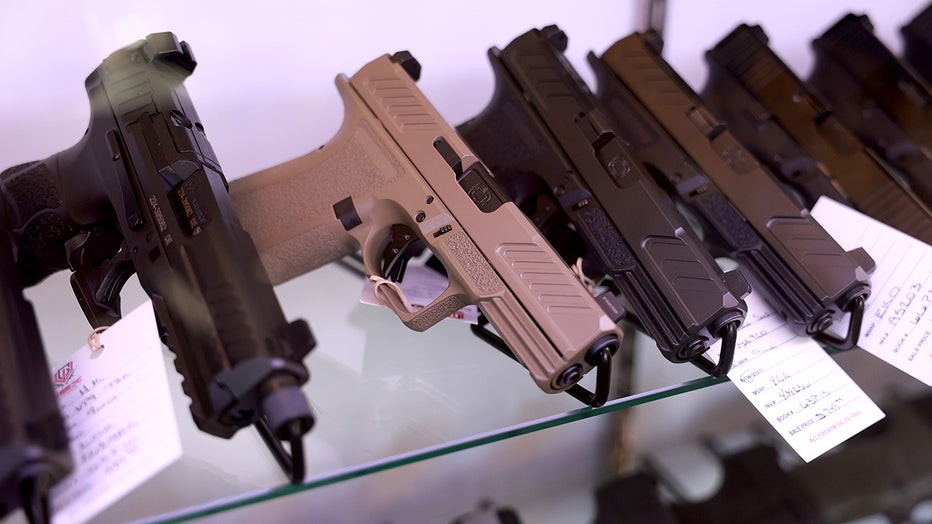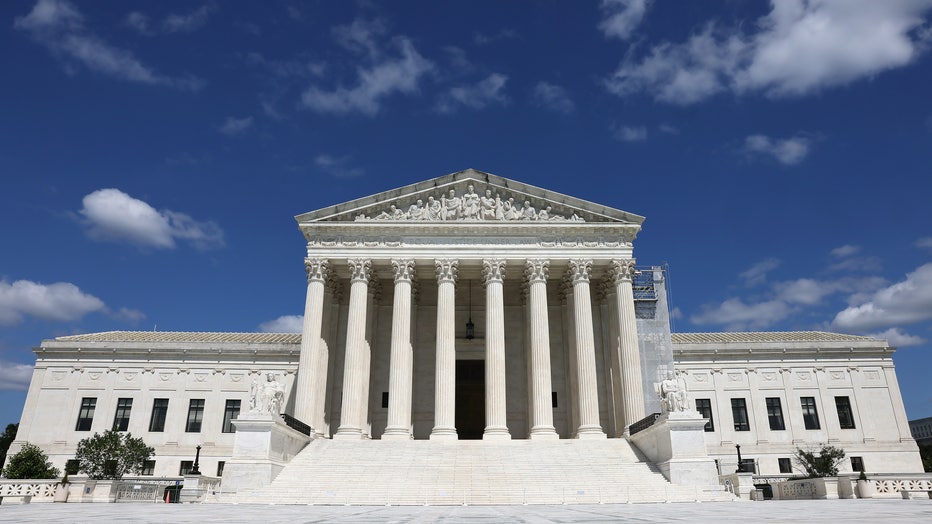Supreme Court upholds gun law meant to protect domestic violence victims

SCOTUS rules on federal gun law
The Supreme Court on Friday upheld a federal gun control law that is intended to protect victims of domestic violence.
The U.S. Supreme Court on Friday upheld a federal law that prohibits people under domestic violence restraining orders from having guns.
The 8-1 decision (Justice Clarence Thomas dissented) keeps in place a 1994 ban on firearms for people under restraining orders to stay away from their spouses or partners. The justices reversed a ruling from the federal appeals court in New Orleans striking down the law.
Advocates argued that removing guns in domestic abuse cases is one of the most effective actions you can take to protect victims of domestic violence. Gun rights supporters countered that people under protection orders haven’t been convicted of a crime, thus taking their firearms away violates the Second Amendment.
The decision comes a week after the high court overturned a Trump-era ban on bump stocks, the rapid-fire gun accessories used in the deadliest mass shooting in modern U.S. history. The court ruled that the Justice Department exceeded its authority in imposing that ban.
The case: US vs. Rahimi
The decision stems from a case that involved a Texas man, Zackey Rahimi, who was accused of hitting his girlfriend during an argument in a parking lot and later threatening to shoot her.

FILE - Firearms at a gun store (Getty Images)
The girlfriend obtained a protective order against him in Tarrant County in February 2020.
Eleven months later, Rahimi was a suspect in shootings when police searched his apartment and found guns. He eventually pleaded guilty to violating a federal law passed by Congress in 1994 that prohibits people under domestic violence orders from having firearms.
However, the 5th Circuit Court of Appeals, which covers Texas, Mississippi, and Louisiana, overturned that conviction when the Supreme Court struck down New York’s stringent gun laws in 2022. The appeals court ruling in that case, New York Rifle and Pistol Association, Inc. vs. Bruen, nullified the federal law passed in 1994.
The ruling also resulted in lower courts striking down more than a dozen gun laws across the U.S.. Those include age restrictions, bans on homemade ghost guns that don’t have serial numbers, and prohibitions on gun ownership for people convicted of nonviolent felonies or using illegal drugs.

Exterior view of the U.S. Supreme Court building on June 11, 2024 in Washington, DC. (Photo by Jemal Countess/Getty Images for Court Accountability)
The justices could weigh in soon in one or more of those other cases.
Justice Elena Kagan noted in 2023 that there seemed "to be a fair bit of division and a fair bit of confusion about what Bruen means and what Bruen requires in the lower courts."
Solicitor General Elizabeth Prelogar, defending the domestic violence law, urged the justices to use the U.S. vs. Rahimi case to correct lower courts’ "profound misreading" of the decision.
Liberal and conservative justices sounded persuaded by arguments from the Biden administration’s top Supreme Court lawyer in November 2023 that the prohibition is in line with the longstanding practice of disarming dangerous people.
Links between domestic violence and guns

Domestic violence: help & resources for survivors
Sean 'Diddy' Combs released a video saying he's "truly sorry" for physically assaulting singer Cassie Ventura, after hotel surveillance footage was released showing the 2016 attack. Dr. Susan Weitzman, psychotherapist and domestic violence educator, joins LiveNOW from FOX to explore resources for survivors of domestic violence.
On average, about 24 people are victims of domestic violence every minute in the United States, according to the National Domestic Violence Hotline.
Both men and women can be victims of domestic violence, but women are especially vulnerable, with nearly 29% saying they’ve experienced some form of domestic violence. In comparison, about 10% of men have admitted to experiencing some form of domestic violence.
The U.S. also has one of the highest rates of femicide – killing a woman or girl because of her gender – among high-income countries, according to a report published by the Population Institute earlier this year.
"Women in the U.S. are 28 times more likely to be intentionally murdered by guns than women in peer countries," the report said.
The Associated Press contributed to this report.

